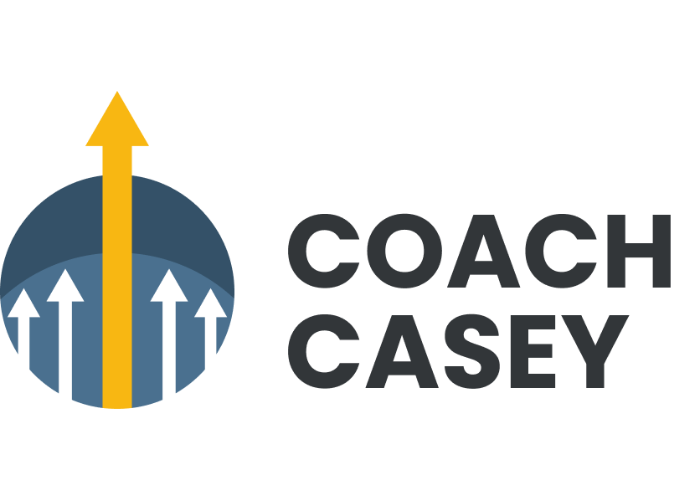Reframing Perspectives from Avoiding to Embracing
A client of mine was feeling self-conscious while riding her horse in front of strangers or people she didn’t know well. It was affecting her performance as a rider, and more importantly, it was robbing her of the joy of her relationship with her horse.
As we discussed this she realized that she felt this special relationship should be private. However, she also realized she couldn’t avoid others coming to watch her ride, and letting this ruin her ride was silly.
She chose to embrace the idea that the almost symbiotic relationship between her and her horse is a beautiful thing and anyone who gets to watch is lucky. They are fortunate that they get to witness the fluidity and relationship between her and the horse.
She became joyful and emotional talking about this and was confident that she wouldn’t falter the next time others watched her ride, but instead, would focus on her horse and the rare opportunities she gets with him (since he lives in a different country.)
She told me in a follow-up session that her trainer could see a HUGE difference in how she was riding and the client attributes this to embracing this new mindset around strangers watching her ride.
Avoiding
We learn from pain, failure, and discomfort from a young age. We fall when we take our first steps. We touch a hot stove. We get chosen last in the schoolyard lineup. We get turned down for the school dance. We get laughed at when we misuse or mispronounce a word.
In all of these examples, we would be limiting our full potential if we completely avoided the cause of our pain or humiliation.
Would we decide to crawl when we are perfectly capable of walking? To avoid sports or never ask anyone out on a date because we were rejected once? To take a vow of silence because we were laughed at when we misspoke?
Sadly, as we grow and mature beyond our teen years, we tend to take less and less risks. We tend to settle into what is known, comfortable, safe. And we avoid the unknown, uncomfortable, risky options presented to us.
We will never reach our full potential if we avoid pain. Failure. Humiliation. Disappointment. Risk.
Coaching Helps Us Identify What We’re Avoiding
There is a misconception from many people outside the coaching world that coaching is only needed when something negative is going on in the client’s life. A dysfunctional relationship. A conflict to resolve. Underperforming at work. Coaching is very effective in these situations.
However, we all long for something. We all want to grow and change. We see a gap we want to fill—an imbalance we want to correct.
Sometimes we feel resigned to the way things are and like there’s no way to close the gap or achieve balance. Sometimes we take too much responsibility for the change and we focus on what we can’t control, rather than what we can, and we grow bitter. Sometimes we’ve been settling for the status quo for so long that we don’t realize all the untapped potential we’re missing out on.
We’re often stuck because we are avoiding the pain and disappointment of failure, conflict, discomfort.
As a coach, we get to witness a transformation from the beginning of a session to the end. I’ve seen clients go from *clenched fists* to *open hands*. From *furrowed brow* to *shoulders back, smiling*. From dreading their next steps to enthusiasm for the future. Reflecting these things to the client has helped them find what was weighing on them vs. what was making them feel free, and at peace.
Embracing
What does it mean to embrace something?
It can mean hugging something. To hold it close.
It can also mean ‘to accept or support (a belief, theory, or change) willingly and enthusiastically’ per Oxford Languages.
We easily embrace and welcome things we like.
A close friend or significant other. A fluffy pet. A raise or promotion at work. Compliments and praise.
But what about things we don’t like? Or things we’ve avoided at all costs?
In the 2003 film adaptation of The Lord of the Rings, The Return of the King, Théoden and the armies of Rohan come at dawn to the aid of Minas Tirith against the armies of the shadow.
Théoden is literally bringing the cavalry when all hope seems lost. Thousands of trained soldiers and skilled riders. However, they are facing a terrifying horde of orcs, trolls, and other evil, powerful creatures.
Before sounding the charge Théoden gives a speech. But he does not motivate his army with the idea of victory or bravery or the hope of salvation.
He shouts:
Arise, arise, Riders of Théoden!
spear shall be shaken, shield shall be splintered,
a sword-day, a red day, ere the sun rises!
Ride now, ride now, ride!
Ride for ruin and the world’s ending!
Death! (Army repeats “DEATH!”)
Death! (Army repeats louder “DEATH!”)
Death! (Army roars “DEATH!”)
Forth Eorlingas!
As they charge the enemy, thundering across the Pelennor Fields, they ride as one. Resolved to die that they might save some. And the enemy cowers in fear as this wave of powerful horses and spears and swords comes crashing upon them.
The King of Rohan helped his soldiers embrace what they could not avoid: Death.
And although there were casualties amongst their soldiers they saved many lives in Minas Tirith by drawing attention away and keeping the enemy occupied.
The armies of Rohan embraced the idea of death, accepted it willingly and enthusiastically, because their longing was greater than their fear.
Embracing vs Avoiding
Think of something you’re avoiding.
Now imagine this thing you’ve been avoiding as if it were a person. A person you run into all the time. At the store. At the gym. Even in your neighborhood. Perhaps they are even in your home at times.
You have finally come to grips with the fact that you can’t avoid this person without locking yourself in your room.
So what do you do? Do you just steel yourself every time you run into this person? Mentally prepare? Count to 10? Take deep breaths?
You could.
But what if you chose to embrace this person? Hug them! Ask them how they are doing. Try to look at things from their perspective. Think about their worries. Their hopes. Their background or upbringing and what makes their experience unique from yours.
Your empathy and appreciation for that person immediately increase. They may still be abrasive to you. They may not become your best friend. But you’ve gone from avoiding that person and torturing yourself because you can’t avoid them to embracing that person as part of your life.
I can speak to this from personal experience. I had one relationship in particular that, for a long time, was close only in the sense of proximity. I was around this person all the time and yet I would let myself be triggered when I felt interrupted by them or surprised that they were present when it shouldn’t have been a surprise.
I realized I was trying to avoid an inevitable relationship. The person wasn’t harmful or damaging, they just rubbed me the wrong way. When I realized this and chose to embrace that person, to learn about their cares, hopes, worries, perspectives; our relationship improved tenfold. This was mostly due to my own attitude and expectations changing rather than the other person changing.
Self-Application
Now come back to the thing you’ve been avoiding. Is it a task? A project? A conversation? A person? A skill you want to build? A weakness you need to acknowledge? A career change?
Write down your answers to these questions.
What is the thing you’ve been avoiding?
Why have you been avoiding it? (Of course, make sure you’re safe.)
What could you do to embrace it?
What would embracing it feel like?
What might your life look like if you embraced it?
How could this thing you’ve been avoiding help you achieve your goals?
Who could support you on this journey?
If we stop avoiding and start embracing and expecting these things, looking at conflict, discomfort, and even failure as healthy things on the path to growth, we will be more productive, resilient, and joyful.
Isn’t life so much more fulfilling when we try and fail?
As singer/songwriter Sam Ryder put it:
And everybody falls
But some of us are born to fight, and fight, and fight some more
So, we will see you here
Same time, same place, next year
And you may win this battle but you’ll never win the war
Better to have fought and lost than never fought at all
This idea of embracing failure is also the basis for my coaching model, LIFT, which I explain in a separate post. In short, it stands for “Longing + Identity x Failure = Transcend”.
The scientific method is based on this principle. Trying and failing is the most effective way to learn.
Let’s embrace failure to help ourselves grow.
References
Tolkien, J.R.R. & Jackson, P. (Writer and Director). (2003). The Lord of the Rings, The Return of the King [Film]. New Line Cinema.
Fought & Lost lyrics © Reservoir Media Management Inc, Universal Music Publishing Group
Songwriters: Jamie Hartman / Sam Ryder / Tom Howe

